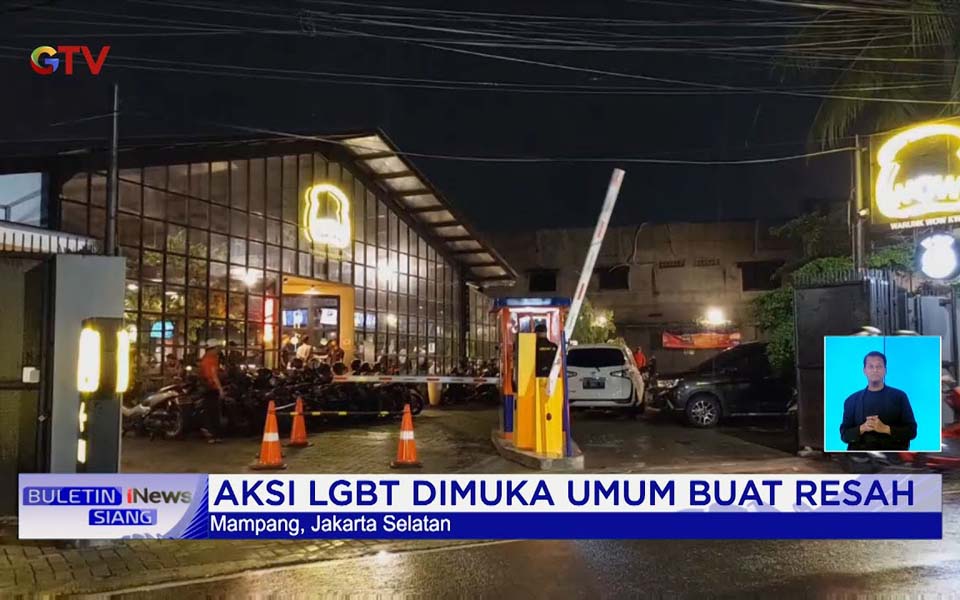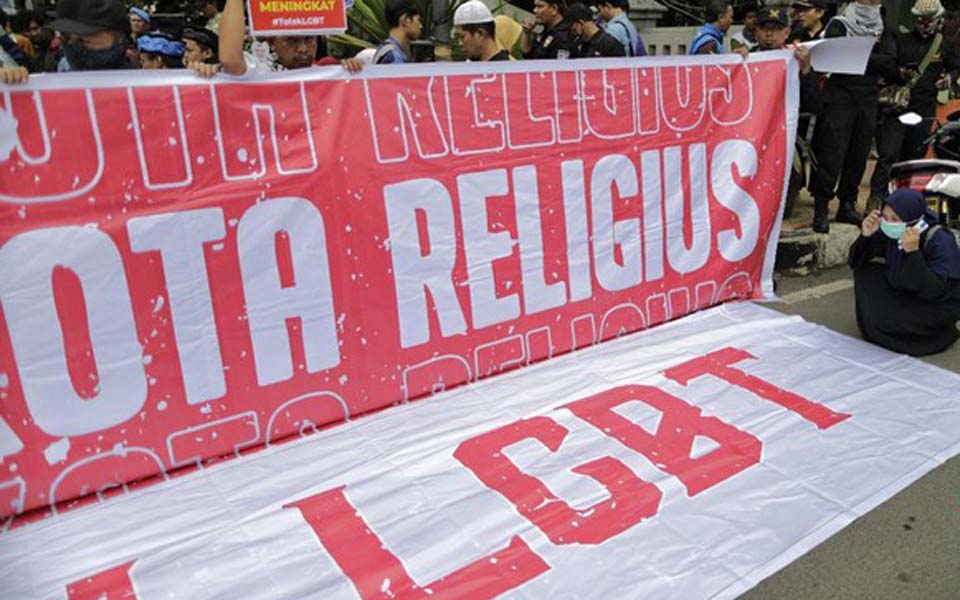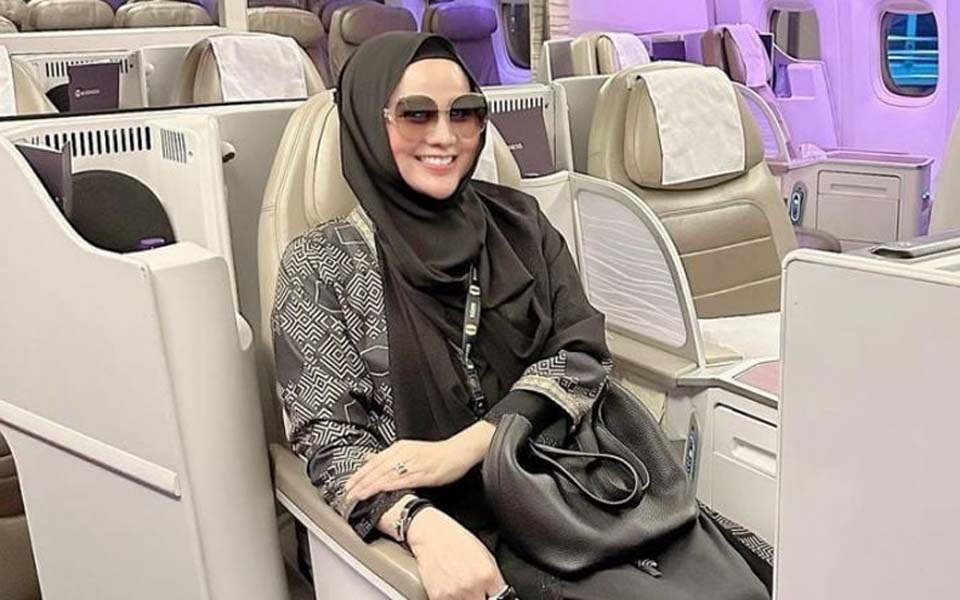Protests against Lesbian, Gay, Bisexual and Transgender (LGBT) groups have taken place in a number of parts of the country. Why is it difficult for society to accept the presence of the LGBT community in a more intelligent way?
Islamic studies researcher Abdul Muiz Ghazali says that Indonesians, the majority of which are Islamic, have long been familiar with the presence of LGBT people. According to Ghazali there is in fact space within Islam to understand gender diversity.
But this has changed since 2017 when opposition began against the LGBT community driven apparently by certain political forces.
“Within Islam there are also terms which speak about the issue of sexual orientation. For example, irbah minar rijal, men who do not have a sexual desire for women. Then there is the term mukhannath meaning men who appear to be women”, Ghazali explained when contacted by VOA.
“The current opposition to LGBT is not in truth purely coming from Islam but more from political issues. So the LGBT issue is being manipulated in such a way for political goals which in essence are not really related to religious issues”, Ghazali added.
The lecturer and researcher at the Fahmina Islamic Studies Institute (ISIF) in Cirebon, West Java, is asking the public to be more astute in its attitudes towards the LGBT community.
He believes that the ulama [Islamic leaders] should understand the LGBT community from a scientific perspective and the historical and social context in their interpretation of passages in the holy book related to LGBT.
“Don’t be too reactive. Because the Prophet Muhammad taught against being reactive, always teaching deliberation and education. There’s been no education yet so how come suddenly there’s punishment? Because before punishing we must understand the substance of what is being punished”, he explained.
Two demonstrations opposing LGBT took place in Payakumbuh, West Sumatra, on Monday November 5 and in Bogor, West Java, on Friday November 9. During the actions, ormas (social or mass organisations) called on their respective regional governments to issue bylaws which in essence would ban LGBT people. Separately, the Regional House of Representatives (DPRD) in two regions declared they were drafting such a regulation.
Community Legal Aid Institute (LBH Masyarakat) public defender Naila Rizqi Zakiah says that regulations such as this are not in accord with the 1945 Constitution (UUD 1945) which protects all citizens. Because of this, she says that the government must stand firmly on the side of the constitution.
“In so far as the public’s wishes are in accord with the UUD there isn’t a problem. But if the UUD adheres to the principle of non-discrimination, then the state must comply with the UUD and not with the wishes of the public. We need to study these wishes more deeply. Did these wishes emerge from an awareness of human rights or did they in fact emerge from the politics of hate which are promoted by the [political] elite and certain groups, right”, she said in conclusion.
Zakiah added that discriminatory regulations will increase violence against the LGBT community.
In its 2017 report, LBH Masyarakat recorded that there were 45 cases of human rights violations and violence against LGBT people. Hate speech was the most common with 15 cases followed by criminalisation with 12 cases.
The foundation also recorded that there were 106 perpetrators of stigmatisation, discrimination and violence against LGBT people in 2017. The majority were committed by ormas with 29 cases and law enforcement officials with 25 cases.
Zakiah is calling on the public to respect the rights of LGBT people as citizens even if they don’t agree with their presence. This must also be pushed by the government which needs to behave justly towards minority sexual groups.
“The state must be smart. [Understand] that the constitution does not allow for discrimination. If you want to say that LGBT people are sodomists, sinful or whatever, LGBT people are Indonesian citizens. They (law enforcement officials) must also be loyal to the constitution”, Zakiah explained.
“Professionals are loyal to science, the state and law enforcement officials must be loyal to the constitution. Now, that is what isn’t happening at the moment”, she explained. (rt/em)
[Translated by James Balowski. The original title of the article was Pengamat Nilai Indonesia Punya Ruang Bagi LGBT.]
Source: https://www.voaindonesia.com/a/pengamat-nilai-indonesia-punya-ruang-bagi-lgbt/4653486.html















